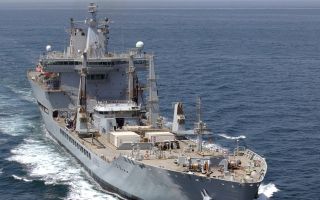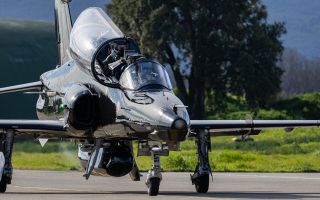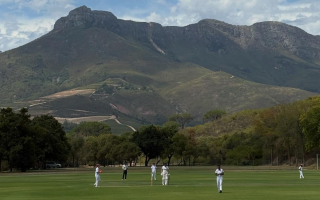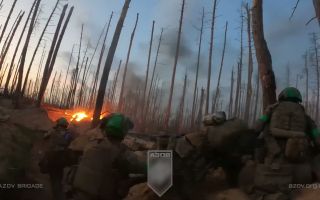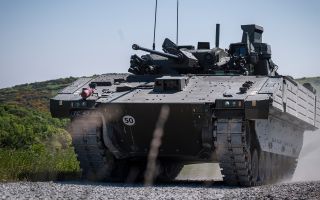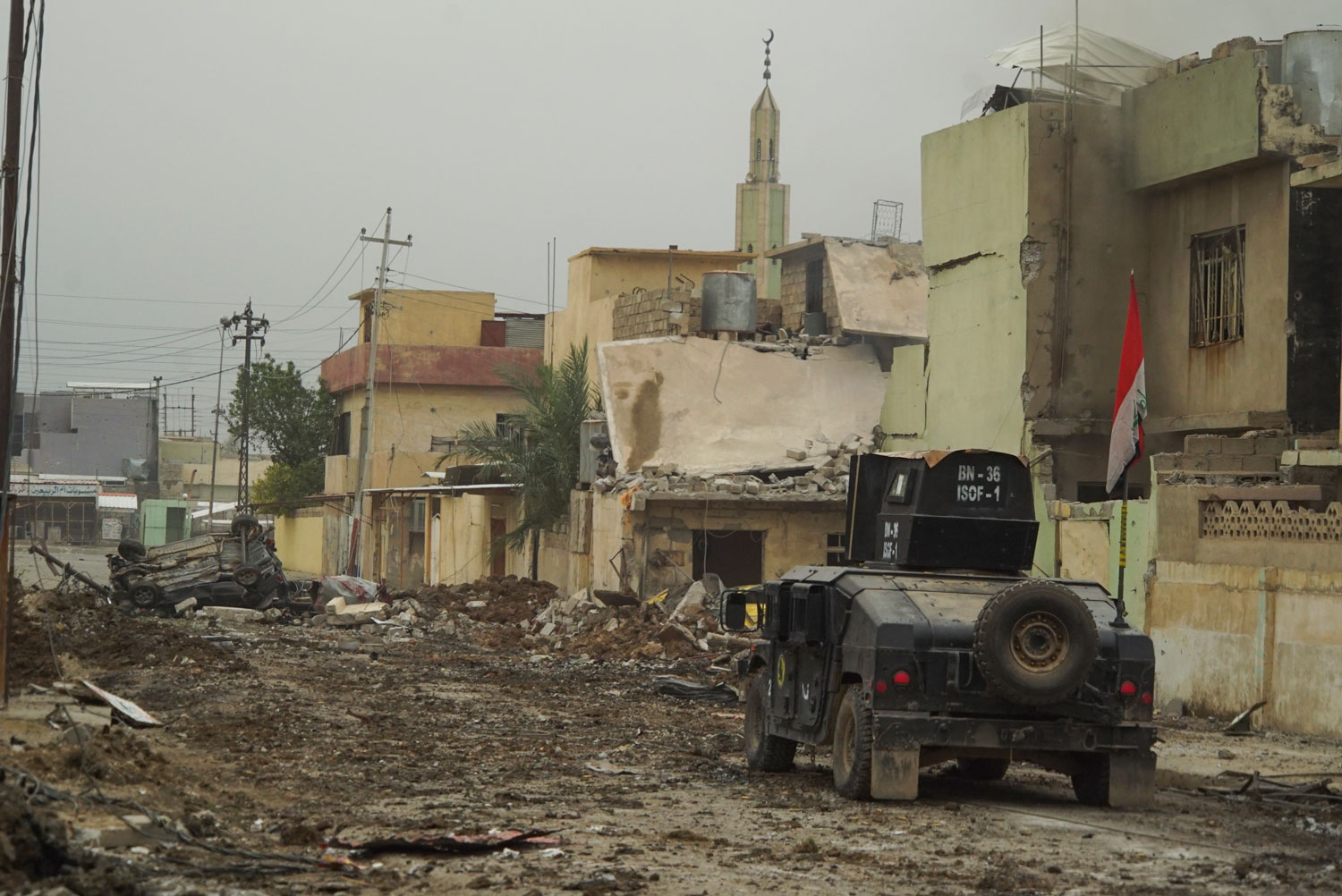
Amnesty Report Needs To Be Handled With 'Extreme Caution', Says Fallon

The Defence Secretary has said an Amnesty International report about civilian casualties in Mosul should be treated with "extreme caution".
Sir Michael Fallon told MPs he had seen no evidence that RAF strikes in Iraq had killed civilians, as the UK and an international coalition battle terror group Islamic State (IS).
Amnesty said Iraqi forces and the coalition have killed and injured thousands, and appear to have committed "repeated violations of international humanitarian law", some of which "may amount to war crimes".
While updating the Commons on the campaign against IS, Sir Michael Fallon said:
"I want to assure the House that I have seen no evidence as of yet that an RAF strike has involved civilian casualties, and I wait to see that evidence being produced.
"If anybody has any evidence then it needs to be forwarded to us, as indeed other organisations like Airwars have been doing throughout the conflict, and we are ready to investigate.
"But otherwise I would urge extreme caution in the handling of the Amnesty report."
He added that RAF strikes were "absolutely lawful" and that there were robust and rigorous checks in place to minimise civilian casualties.
Allan Hogarth, Amnesty International UK's head of policy and government affairs, said that acts of cruelty by IS do no absolve Iraqi and coalition forces of a grave responsibility to avoid unnecessary civilian casualties:
"Instead of criticising us for reporting on the catastrophic impact of the battle for Mosul on civilians, Michael Fallon ought to explain how it is that coalition air strikes killed and injured so many civilians in the city.
"We documented at least 426 civilian deaths from just 45 Iraqi and coalition attacks - an extremely worrying casualty rate. Thousands more are thought to have been killed in other pro-government air strikes.
"Sir Michael's claim that hundreds of RAF air strikes in and around densely populated Mosul resulted in absolutely no civilian casualties is implausible, to say the least.
"Rather than lashing out at Amnesty, the Defence Secretary should support an independent investigation into the conduct of this gruelling conflict."
Major General Rupert Jones, Deputy Commander of the international anti-IS coalition, has said the report is "disrespectful" to the Iraqi government.
He added:
"We should just briefly take stock, it was a nine-month battle - probably the most significant urban battle since the Second World War - and the Iraqi security forces prevailed, with the support of the coalition, and they did so with great style... I think the whole world should congratulate them for that."
The senior British commander said Amnesty's claims are "deeply irresponsible" and that it is naive to think Mosul, with a population of 1.75 million, could be liberated without any civilian casualties while fighting an enemy that "lacks all humanity".
"It strikes me as being written by people who simply have no understanding of the brutality of warfare. But we should be absolutely clear who were deliberately killing civilians,"
"It wasn't the government of Iraq, it wasn't the coalition, it was ISIS - everybody should be entirely clear what they were doing with the civilians.
Days after a "total victory" in Mosul was declared by the Iraqi prime minister, Amnesty suggested the government and coalition carried out "disproportionate" and "unlawful" attacks in the fight to take back the city.
After IS seized control of Iraq's second biggest city in June 2014, Mosul became a stronghold for the extremist group.
Gen Jones said it is "huge kudos" to Iraqi government forces that they have now liberated the city held by IS for more than three years.
He warned there will still be "pockets which need to be tidied up" within Mosul, and that the recapturing of the city does not mean the end of IS in Iraq - with areas yet to be "cleared".
"The message to the international community should be this is a hugely decisive blow against IS but don't think it is the end, it isn't. There is still hard fighting to follow," Gen Jones said.
British forces are expected to remain in Iraq "well into 2018", according to the Government.
The Chief of the Air Staff, Air Chief Marshal Sir Stephen Hillier, has also said that there is still a lot to do to defeat the militants in Iraq and Syria.
The UK is just one country that makes up the Global Coalition of 72 members joined together in a commitment to eradicate IS.
Earlier this month, another charity warned that Iraqi children who managed to flee Mosul have been left psychologically damaged.


